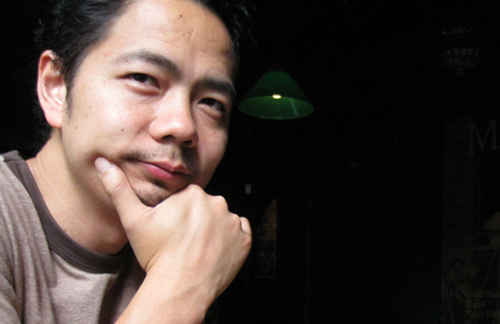
Have you ever told someone to “stop being so defensive?” Have you ever described someone who was very particular about things as being “anal?” You’re talking psychology: those concepts were created by Sigmund Freud, but they have become part of everyday conversation.
“If you think back a hundred years ago, before Freud and the establishment of psychology, we had other ways of talking about ourselves and understanding how we thought,” says U of G psychology professor Jeffery Yen. “But now the language of psychology has become a big part of how we talk and think about ourselves — we’re now thoroughly psychologized. I am interested in how that impacts us as a society, where issues that we used to think of in ethical or political terms are now conceptualised in psychological terms.”
His interest in understanding the impact of psychological knowledge started when he was growing up in South Africa. “My grandparents emigrated from China to South Africa, so I grew up under apartheid,” Yen explains. “The Chinese were treated as non-whites at first, but in the 1980s we were granted the dubious status of ‘honorary whites’ and were allowed to live in the same areas and attend some of the same schools as whites.” Psychologists, he says, played a significant role in establishing the idea of natural differences in intelligence and personality between races in South Africa.
After doing his undergrad at the University of the Witwatersrand in Johannesburg, Yen trained as a counselling psychologist at Rhodes University while earning his MA and after graduation completed a clinical internship in a military hospital in Cape Town.
“During this internship I could see how many psychological formulations of people’s difficulties were infused with racial, cultural and gender stereotypes that could force people into certain identities, despite our best intentions,” he says. “For example, once a woman had been diagnosed with borderline personality disorder she would have a great deal of difficulty convincing the mental health team of the legitimacy of her experience, and things like taking risks and having multiple sexual partners were seen as evidence of pathology for women, but not in men. There was a double standard.”
He also saw that black patients were treated differently than white patients, based on taken-for-granted assumptions about African culture. “Black patients were less likely to be referred for psychotherapy, based on cultural assumptions that implied that they were somehow less psychologically sophisticated,” says Yen.
His MA research focused on the ways that mental health professionals used cultural formulations in their practice and unwittingly reproduced racial stereotypes in their care. This led to his current interests in studying psychologization. “It’s the cultural embeddedness of psychology itself that needs to be understood,” he says.
After completing his internship, Yen felt he needed more life experience, so he traveled to China, where he worked first as an English teacher, and then in the China Centre for Disease Control in Beijing, focusing on HIV prevention. The challenge of working in that field in China was that AIDS was highly stigmatized. The government, not willing to admit that HIV was a problem, downplayed the statistics, Yen explains. “The project I was working on was funded and designed by the National Institutes of Health in the U.S., so there was the additional challenge of adapting our research methods to the cultural meanings of sexually transmitted diseases in China.”
From there, Yen returned to Rhodes University to take up a lectureship in psychology where he taught and researched in community and social psychology and worked in private practice. During his time as a lecturer at Rhodes he met a Canadian woman who became his wife, and together they decided to move to Canada, where Yen completed his PhD at the University of Toronto.
In his doctoral thesis, he considered another perspective about the role of psychology in our lives and society: how the public makes sense of new psychological tests. He focused on people’s experiences and understanding of the implicit association test, which claims to reveal the hidden racial biases that many people have even if they are not really aware of them. He looked at how the test was reported in newspapers and how people responded to taking it.
“It’s great using discussions in online newspapers because their interactive components can be a rich source of data on more controversial topics,” Yen says. He also conducted interviews with people who had just taken the test to reveal their unconscious biases. “I wanted to understand how they made sense of their test results and what being ‘unconsciously prejudiced’ meant to them.”
Why is that important? He explains: “If we begin to see racism as largely the result of automatic or unconscious prejudice, how do we develop social policies to respond? I’m looking at how this new area of psychology may have social justice implications for our society.”